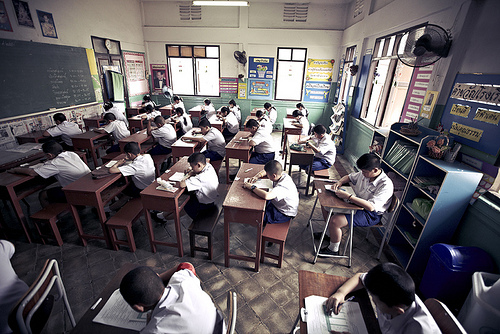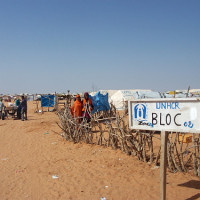Report Shows Parents Frustrated with Poor Education in Developing Nations
 The non-profit organization Save the Children released a report to the United Nations on the low quality of education being provided to many of the world’s children. The report entitled Right to Learn: Community Participation in Improving Learning demonstrates the educational crisis facing children throughout developing countries. By reporting on concerns parents have about basic education, Save the Children seeks to promote the inclusion of parents in decision making processes when discussing how to move forward with educational reforms and improvements.
The non-profit organization Save the Children released a report to the United Nations on the low quality of education being provided to many of the world’s children. The report entitled Right to Learn: Community Participation in Improving Learning demonstrates the educational crisis facing children throughout developing countries. By reporting on concerns parents have about basic education, Save the Children seeks to promote the inclusion of parents in decision making processes when discussing how to move forward with educational reforms and improvements.
“We are facing a real and global crisis in learning. Parents are frustrated. Right now, we are failing them, and failing children…there’s just too much at stake for decision-makers not to listen to parents and advocates in developing countries about what needs to be done to improve education and learning for the world’s children” explained Meredy Talbot-Zorn, Save the Children’s global development manager.
The Right to Learn report demonstrated that 250 million children, who account for 40% of all primary school aged children worldwide, lack the ability to read, write or do basic math by the time they reach the fourth grade. Poor education is of greatest concern for poor and marginalized children. These children are at high risk of failing to learn in school, dropping out or never enrolling in the first place.
Parents of these children are understandably frustrated. Parents want their children to have the opportunities to learn and succeed in the world as they grow. Yet many children are enrolled in schools with overcrowded classroom conditions, a lack of sufficient facilities and supplies, high rates of teacher absenteeism, or inadequate staffing.
Despite parental concern, there are many barriers preventing parents from holding schools and governments accountable for the quality of education their children receive. For this reason, Save the Children has argued that parents and other education stakeholders need to work together in order to improve the education these children are receiving.
According to Laura Henderson, the director of education policy at Women Thrive Worldwide, “when the current Millennium Development Goals were being created, parents and advocates from developing countries were largely left out from being able to provide input. That can’t happen again. World leaders need to be accountable to parents for the quality of education that their children receive.”
The Millennium Development Goals established by the UN sough to ensure primary education became universal by 2015. As a result of these initiatives, approximately 45 million children have gained access to primary school education. Although actions taken have succeeded in significantly increasing enrollment in schools, the Right to Learn report demonstrates that enrollment does not equal learning. For this reason, Save the Children hopes to promote a shift in international priorities towards more quality instruction in schools worldwide.
Creative Commons Love: Mishimoto on Flickr.com
Written by Amanda Lubit









